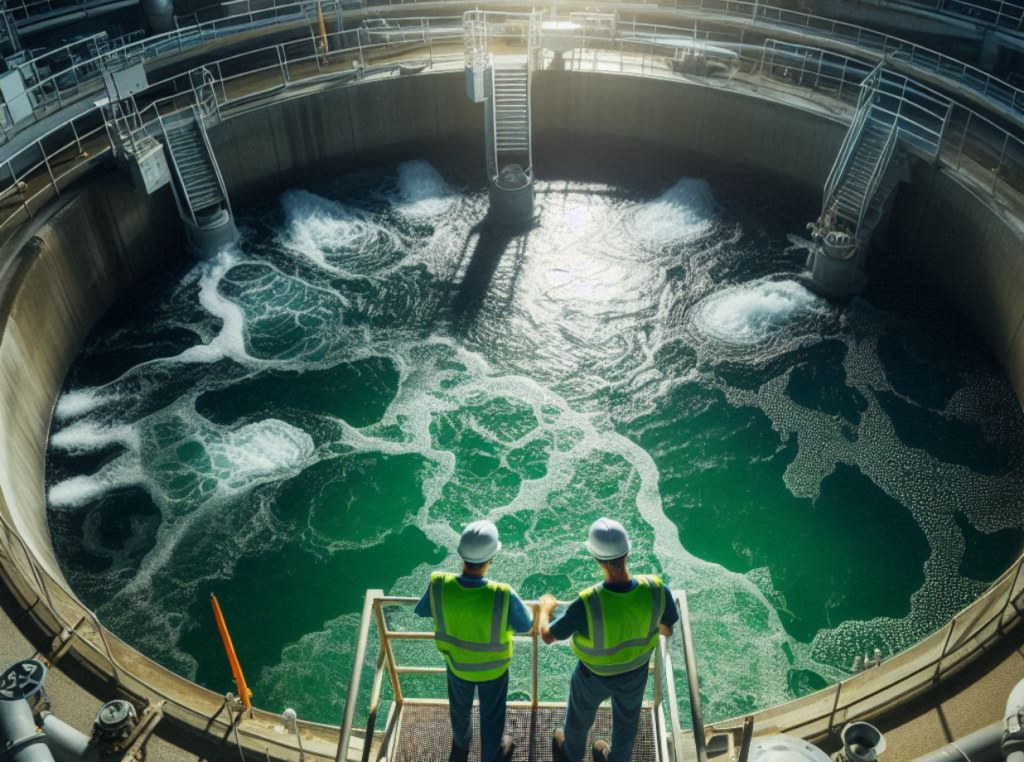Have you been considering a career as a wastewater treatment plant operator and wondering what educational paths are available to you? If so, you’re in the right place. This guide will provide detailed information on the various college degrees that can prepare you for this essential profession.

**Note: College programs are available at both community colleges and universities, offering credits that can enhance your qualifications. While these programs provide valuable knowledge and skills, they do not replace the state-required certifications or licenses needed to work in the field. In most states, a high school diploma or GED is sufficient for basic certification, though a college degree or certificate can be advantageous, particularly for those seeking leadership roles. Remember, certification requirements differ by state, so it's important to check local regulations.
Certificates and Specializations
For those who prefer a fast track into the profession, certificate programs offer specialized training tailored specifically for wastewater treatment plant operations. These programs focus on critical areas including plant operations, safety practices, and regulatory compliance.
Wastewater Treatment Certifications
These certifications generally focus on hands-on instruction that prepares you to meet the daily challenges of running a wastewater treatment plant. You’ll explore topics such as the chemical and biological processes used to treat water, procedures for maintaining equipment, and important safety protocols.
| Program | Average Duration | Core Subjects |
|---|---|---|
| Basic Wastewater Treatment Certificate | 6-12 months | Plant Operations, Safety Practices, Regulatory Compliance |
| Advanced Wastewater Treatment Certificate | 12-18 months | Advanced Treatment Processes, Laboratory Analysis, Environmental Impact |
Safety and Regulatory Compliance
Understanding the safety standards and regulatory requirements is crucial for wastewater treatment plant operators. Specialized certifications help you grasp the essential guidelines set by environmental protection agencies, ensuring that the plants operate within legal frameworks while protecting public health.
Associate Degree Programs
If you’re looking to dive deeper into the science and technology behind wastewater treatment, associate degree programs offer a comprehensive mix of theory and practical experience. These programs cater to those who want more than just basic certifications, providing an in-depth education that can lead to advanced roles within wastewater facilities.
Water and Wastewater Technology
One of the most directly relevant associate degrees is in Water and Wastewater Technology. This program focuses on the operational aspects of water treatment plants and provides abundant hands-on training opportunities.
| Program | Average Duration | Key Topics |
|---|---|---|
| Associate in Water and Wastewater Technology | 2 years | Plant Operations, Water Quality Analysis, Maintenance |
Environmental Science
An associate degree in Environmental Science introduces broader ecological concepts while still focusing on water and wastewater treatment. You’ll learn about various environmental systems, pollution control measures, and sustainable practices.
| Program | Average Duration | Key Topics |
|---|---|---|
| Associate in Environmental Science | 2 years | Ecology, Pollution Control, Sustainable Practices |
Process Technology
This degree centers on the industrial processes involved in wastewater treatment, preparing you with the skills necessary for efficiently managing and maintaining plant equipment and processes.
| Program | Average Duration | Key Topics |
|---|---|---|
| Associate in Process Technology | 2 years | Industrial Processes, Equipment Maintenance, Safety Procedures |

Bachelor’s Degree Programs
Those seeking to elevate their expertise and pursue leadership roles in the wastewater treatment field often find that a bachelor’s degree is the most efficient way to achieve these goals. These programs delve into more advanced topics and often combine extensive theoretical learning with practical applications.
Environmental Science
A Bachelor’s degree in Environmental Science covers a broad spectrum of environmental issues, with specific coursework dedicated to water treatment and quality. By understanding the environmental impacts and advanced treatment methods, you can position yourself for a variety of roles, from regulatory oversight to plant management.
| Program | Average Duration | Key Topics |
|---|---|---|
| Bachelor in Environmental Science | 4 years | Advanced Water Treatment Processes, Environmental Impact Analysis, Regulatory Compliance |
Environmental Engineering
Environmental Engineering offers a more technical angle, blending principles of engineering with environmental science. This degree preps you for designing, implementing, and managing wastewater treatment systems.
| Program | Average Duration | Key Topics |
|---|---|---|
| Bachelor in Environmental Engineering | 4 years | System Design, Hydrology, Wastewater Treatment Technologies |
Civil Engineering
Focused on the infrastructure aspects, a degree in Civil Engineering allows you to specialize in water resources and utility engineering. You’ll gain skills needed to design, build, and manage community water and wastewater systems.
| Program | Average Duration | Key Topics |
|---|---|---|
| Bachelor in Civil Engineering | 4 years | Infrastructure Design, Hydraulics, Public Utilities Management |
Aligning Degrees With Certification Requirements
Each educational pathway leads to certain certifications that are essential for career advancement. Whether starting with a certificate or aiming for a bachelor’s degree, these programs prepare you to meet the licensing requirements set by local and state agencies.
Certification Tiers
Certification tiers can vary by location but generally include the following:
| ier | Description | Required Education |
|---|---|---|
| Entry-Level Certification | Basic operational knowledge and safety practices | Certificate or Associate Degree |
| Mid-Level Certification | Advanced operational skills and environmental impact awareness | Associate Degree or Bachelor Degree |
| Advanced Certification | Comprehensive management and technical expertise | Bachelor Degree |
Enhancing Career Opportunities
Higher educational qualifications not only meet certification requirements but also open doors to advanced career opportunities. Leadership roles, specialized technical positions, and regulatory agency positions often require a bachelor’s degree or higher.
Resource Section
If you’re interested in exploring these educational paths further, check out the following resources:
- American Water Works Association (AWWA): https://www.awwa.org
- Water Environment Federation (WEF): https://www.wef.org
- National Environmental Health Association (NEHA): https://www.neha.org
- Association of Boards of Certification (ABC): https://www.abccert.org
Conclusion
Choosing the right educational path is a pivotal step toward a rewarding career as a wastewater treatment plant operator. Whether you opt for a fast-track certificate program or plan to dive deep into the field with a bachelor’s degree, numerous options are available to equip you with the necessary expertise. With the right education and certifications, you’ll be well on your way to contributing to this essential industry.